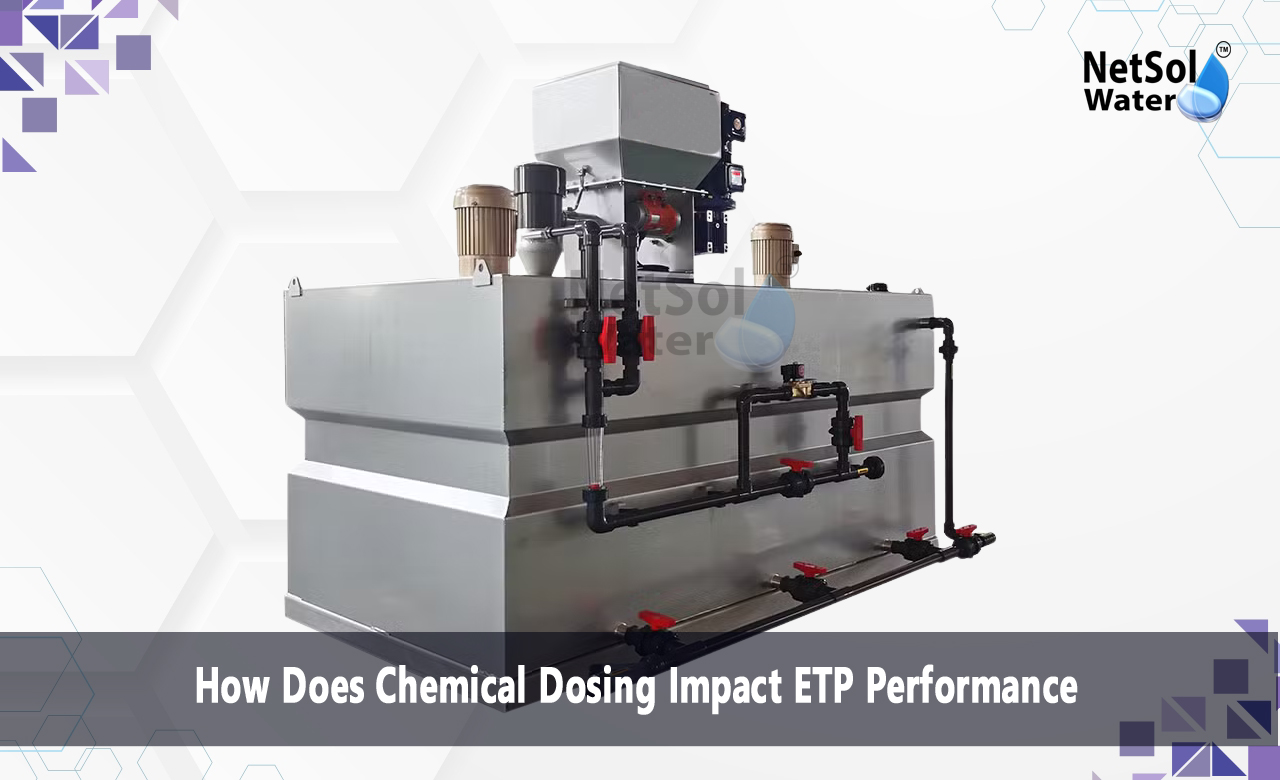How Does Chemical Dosing Impact ETP Performance?
Effluent Treatment Plants (ETPs) serve as safeguards for our environment by cleaning industrial wastewater before release. Chemical dosing stands as a key process that determines how well an ETP functions. The right chemical dosage at the correct time makes wastewater treatment successful while incorrect dosing leads to poor treatment results high operational costs. We will explore how chemical dosing affects ETP performance by looking at dosing methods, chemical selections, timing considerations and monitoring systems. We will discover how each element connects to create an efficient treatment process that meets environmental standards. Plant operators, engineers, and environmental professionals will find practical insights to enhance their ETP operations through better chemical dosing practices.
The Science Behind Chemical Dosing in ETPs:
Chemical dosing forms the foundation of wastewater treatment. It transforms harmful substances into removable forms. The process starts when specific chemicals enter the wastewater stream at calculated points. These chemicals spark reactions that separate pollutants from water.
Different Treatment Stages:
Primary Treatment Chemicals: Coagulants enter the system first. They destabilize suspended particles making them stick together. Common coagulants include aluminium sulfate ferric chloride. The amount needed changes based on wastewater characteristics and pH levels.
Secondary Treatment Additives: Polymers work next to form larger particle clusters. These chemicals create bridges between smaller particles. The result shows a clear separation between solid waste and clean water. Dosage accuracy becomes essential here since too much polymer creates new problems.
pH Adjustment Chemicals: Acids and bases maintain optimal pH throughout treatment. The right pH helps other chemicals work better, ensuring treated water meets discharge standards. Continuous monitoring guides dosage adjustments keeping the process stable.
Optimizing Chemical Usage for Better Results:
Smart chemical dosing improves treatment outcomes saves money protects equipment. This section examines key factors that influence dosing decisions.
Wastewater Analysis Importance: Regular testing reveals what pollutants exist in what amounts. This knowledge guides chemical selection dosage calculations. Tests measure parameters like BOD COD suspended solids heavy metals.
Flow Rate Considerations: Treatment plants handle changing water volumes throughout the day. Dosing systems must adjust to these changes. Advanced equipment uses flow meters to match chemical doses with incoming water amounts.
Weather Impact Assessment: Rain events temperature changes affect wastewater composition. Dosing programs need built-in flexibility to handle these variations. Operators adjust chemical amounts based on weather patterns seasonal changes.
Modern Dosing Technologies Solutions:
Technology advances make chemical dosing more precise and efficient. This section explores current tools and methods that enhance ETP performance.
Automated Dosing Systems: Smart controllers measure water quality parameters in real-time. They adjust chemical doses automatically. These systems prevent overdosing or underdosing situations in which waste chemicals reduce treatment efficiency.
Digital Monitoring Tools: Online sensors track multiple parameters simultaneously. They provide instant feedback about treatment effectiveness. This data helps operators make quick informed decisions about dosing adjustments.
Maintenance Programs: Regular equipment checks ensure dosing systems work correctly. Preventive maintenance stops problems before they affect treatment quality. Well-maintained systems deliver chemicals accurately and consistently.
Take Action for Better Wastewater Treatment:
Chemical dosing directly impacts ETP performance. Understanding its complexities helps create better treatment outcomes. Our team offers expert guidance on optimizing chemical dosing for your ETP. Contact us to discuss your specific needs and receive customized solutions that improve your treatment process.
To explore customised commercial RO plants, Industrial RO plants, ETP or STP solutions for your needs in your areas and nearby regions, Contact Netsol Water at:
Phone: +91-965-060-8473, Email: enquiry@netsolwater.com



